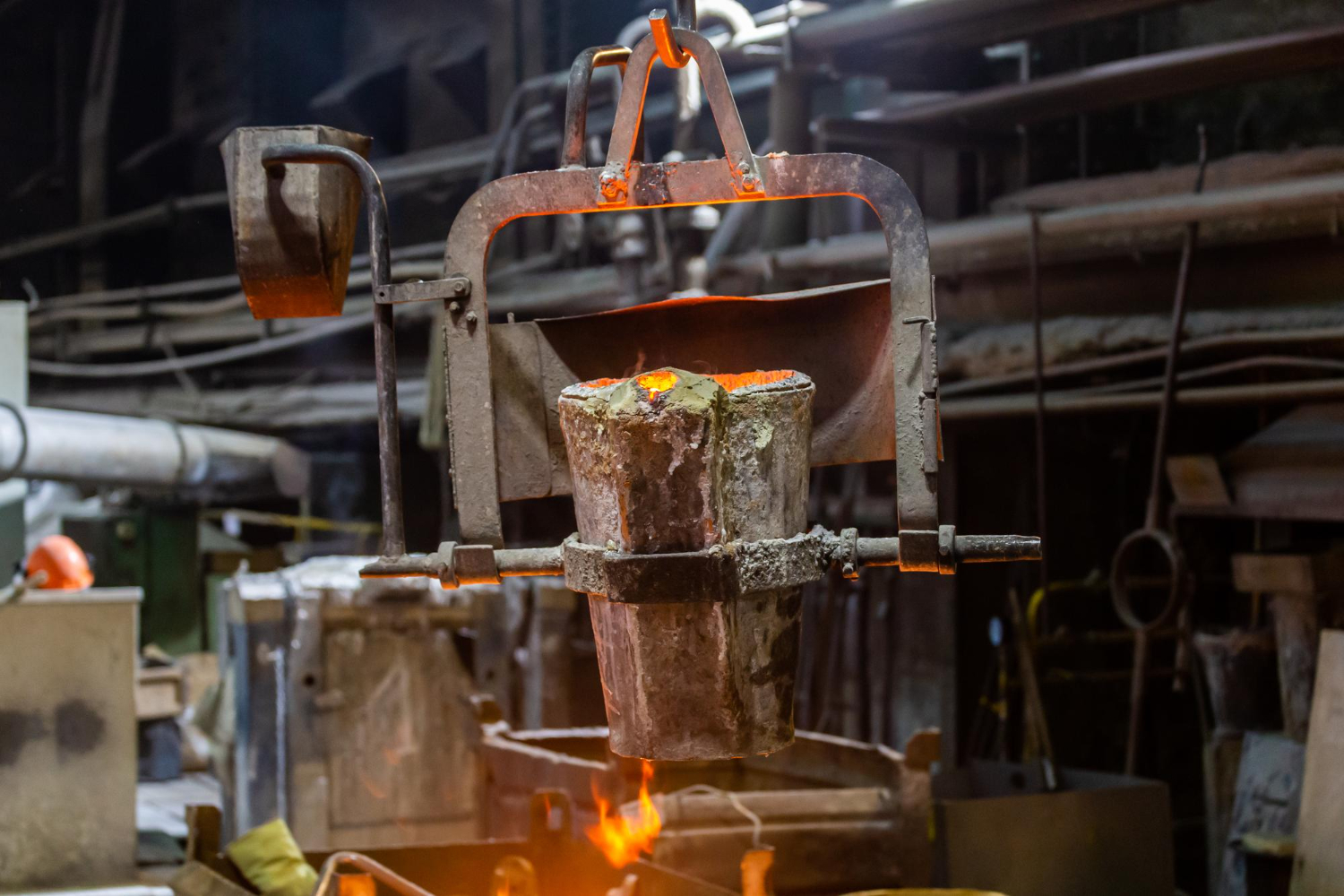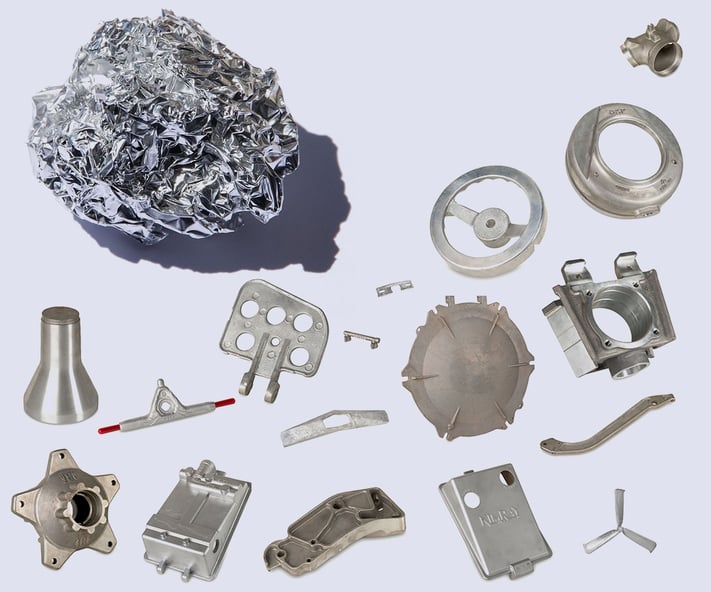Aluminum Castings Company for Dummies
Wiki Article
6 Easy Facts About Aluminum Castings Company Described
Table of Contents9 Simple Techniques For Aluminum Castings CompanyAluminum Castings Company - An OverviewNot known Incorrect Statements About Aluminum Castings Company The Best Guide To Aluminum Castings CompanyThe 6-Second Trick For Aluminum Castings CompanySome Known Facts About Aluminum Castings Company.Aluminum Castings Company Fundamentals Explained3 Simple Techniques For Aluminum Castings Company
There are two key sorts of die spreading utilized in the light weight aluminum casting industry: warm chamber die spreading and cold chamber pass away casting. The primary distinction between these methods is how the molten metal is delivered to the mold and mildew. In warm chamber pass away casting, generally utilized for reduced melting factor steels, the fusion is straight connected to the device, and a bettor requires the material via a gooseneck into the die dental caries.
5 Easy Facts About Aluminum Castings Company Shown
In these techniques, the mold is intentionally ruined or escaped in order to remove the finished aluminum casting. Typical processes under the classification of expendable mold and mildew casting include (investment casting),,, and investment casting. When manufacturing custom-made aluminum parts using expendable mold and mildews, makers pour liquified light weight aluminum or light weight aluminum alloys right into the mold, which is then broken apart to launch the strengthened metal component.The is just one of the oldest and most favored types of light weight aluminum casting. It involves compacting specialized factory sand, often enhanced with clay or resin, around an exactly crafted recyclable pattern that determines the form and internal information of the completed light weight aluminum product. The pattern system integrates risers and vents to manage the circulation of liquified steel and to avoid casting flaws such as contraction porosity.
The 25-Second Trick For Aluminum Castings Company

This mold is then preheated before the putting of molten light weight aluminum or light weight aluminum alloy. As the metal fills up the shell, it captures the intricate details and fine surface coating of the mold. When cooled down, the ceramic is mechanically or chemically escaped, enabling the removal and splitting up of individual actors parts.
Not known Factual Statements About Aluminum Castings Company
Long-term mold and mildew casting makes use of reusable steel mold and mildews and is ideal for automation with consistent quality and less waste. Expendable mold and mildew spreading utilizes single-use molds, like sand or foam, using layout adaptability and reduced tooling prices for models or brief runs. Pass away spreading is best for creating high volumes of aluminum components that call for tight tolerances, great information, and smooth surfaces.The Carat weight includes sophisticated control systems for accurate process administration, including automated ladling, real-time quality assurance, and energy-efficient operation. The Toshiba Equipment DC-J Series consists of pass away casting machines suitable for aluminum. Recognized for their durable building and high injection performance, these makers ensure effective and exact spreading. They include innovative hydraulic and control systems for consistent top quality, along with real-time tracking, automated lubrication, and easy to use shows interfaces.

While light weight aluminum can be used in its pure type, it is often alloyed with other metals to boost its properties or the residential properties of the various other metals. These alloys supply enhanced efficiency for various applications. Light weight aluminum alloys are categorized into eight collection, numbered from one to 8. The first digit(s) of the number suggest the key alloying element incorporated with aluminum.
The Main Principles Of Aluminum Castings Company
This alloying improves the toughness and solidity of aluminum yet lowers its ductility and deterioration resistance. The 3000 series alloys are primarily alloyed with manganese.Additionally, it includes high ductility and an extremely smooth ended up surface area. The 4000 collection alloys are alloyed with silicon, which reduces the melting factor and enhances fluidity. This makes it a preferred option for casting, as it is very easy to create in its molten state. The 4000 collection is additionally commonly used as a filler for welding and brazing applications.
Some Known Facts About Aluminum Castings Company.
This series is classified as a high-strength alloy, specifically matched for sheet and plate applications as a result of its outstanding weldability. Its resistance to rust from acids and antacid makes it perfect for use in rough and hostile atmospheres (Aluminum Sand Castings). The 6000 collection alloys are alloyed with both magnesium these details and silicon, providing a balance of stamina, mechanical homes, and rust resistanceProcessing the 6000 collection calls for specialized and sophisticated devices, which can be complicated and expensive. However, this series is recognized for its outstanding deterioration and oxidation resistance, as well as its convenience of covering, therapy, and workability. The 7000 series aluminum alloys are the toughest and most long lasting among light weight aluminum types, with stamina similar to about two-thirds of industrial-grade A3 steel.
Some Ideas on Aluminum Castings Company You Need To Know
Zinc is the key alloying element in the 7000 series, boosting the solidity of the aluminum, even though zinc's hardness resembles that of light weight aluminum on the Mohs range. The 8000 series aluminum alloys are primarily alloyed with tin, together with percentages of copper and nickel (Metal Castings). While these alloys provide reduced toughness compared to various other collection, they succeed in machinability and use resistanceLight weight aluminum cast heatsinks are electrically conductive, permitting them to be grounded effectively. They are often cast with integrated attributes that lessen the need for additional operations, such as additional machining or setting up, resulting in further price financial savings. Light weight aluminum casting is frequently used to make braces for both durable industrial tools and house devices.
The Definitive Guide for Aluminum Castings Company
The single-piece construction of light weight aluminum brackets boosts their stamina and durability, reducing the likelihood of failure. If holes are called for, they can be consisted of straight in the casting mold, lessening the requirement for post-production completing (https://hearthis.at/alumnmcstngs/set/alumnmcstngs/). Manufacturers have actually progressively adopted aluminum casting for golf devices because of its longevity, security, and convenience in shapingReport this wiki page